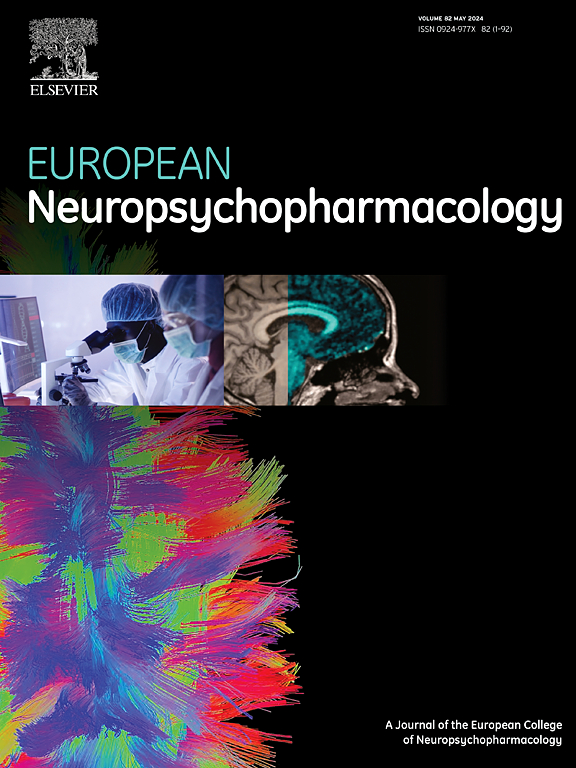环境意识心理药物疗法:给精神科医生的实践建议。
IF 6.1
2区 医学
Q1 CLINICAL NEUROLOGY
引用次数: 0
摘要
尽管精神药物会对环境造成多方面的负面影响,但目前还缺乏对这些影响以及如何减少这些影响的概述。因此,我们总结了最相关的文献,我们称之为环保意识精神药物疗法(ECP),即在为患者开具最合适的精神药物处方的同时考虑到地球的福祉。在文献评估中,我们从行业、医生、药剂师、患者和政策制定者等层面确定了可行的行动,以减少精神药物对环境的危害。我们将这些行动分为以下几类:谨慎选择治疗方法、减少过量处方、使用者对药物进行适当处置以及透明地报告环境风险。对于其中的每一类,我们都举例说明了符合 ECP 的做法,这些做法反过来又有可能减少精神药物处方对环境的影响。我们注意到,许多此类做法对患者、处方者和环境都有好处。另一方面,对于与这些药物相关的几个因素,如生产地理区域、使用时间长短、药物治疗与非药物治疗的选择以及生态毒理学数据,还缺乏环境影响方面的证据。我们的结论是,临床医生在开具精神药物处方时的一般考虑因素以及针对特定疾病的考虑因素都有可能限制与这些药物相关的环境负担。未来旨在填补我们发现的知识空白的研究很可能会在不久的将来大大推动 ECP 的发展。本文章由计算机程序翻译,如有差异,请以英文原文为准。
Environmentally conscious psychopharmacotherapy: Practice recommendations for psychiatrists
Despite the multifaceted negative influences of psychotropic medications on the environment, an overview of such effects and of actions to curtail them is currently lacking. We therefore summarized the most relevant literature on what we refer to as Environmentally Conscious Psychopharmacotherapy (ECP), i.e., prescribing the most appropriate psychotropic medications for patients while at the same time considering the wellbeing of the planet. In our literature appraisal we identified viable actions at the levels of industry, physicians, pharmacists, patients, and policymakers that can reduce the environmental hazards associated with psychotropics. We divided these actions into the following categories: careful treatment selection, curtailing overprescribing, adequate disposal of medication by users, and transparent reporting of environmental risk. For each of these categories, we give examples of practices are in line with ECP, which in turn has the potential to reduce the impact of psychotropic medication prescribing practices on the environment. We note that many such practices result in co-benefits for patients, prescribers and the environment. On the other hand, evidence on environmental impact is lacking for several factors related to these medications, e.g., geographical region of manufacturing, duration of use, pharmacological vs. non-pharmaceutical treatment options, and ecotoxicological data. We conclude that general as well as disorder-specific considerations for clinicians prescribing psychotropics already carry the potential to limit the environmental burden associated with these agents. Future research aimed at filling the knowledge gaps we identified is likely to substantially advance ECP in the near future.
求助全文
通过发布文献求助,成功后即可免费获取论文全文。
去求助
来源期刊

European Neuropsychopharmacology
医学-精神病学
CiteScore
10.30
自引率
5.40%
发文量
730
审稿时长
41 days
期刊介绍:
European Neuropsychopharmacology is the official publication of the European College of Neuropsychopharmacology (ECNP). In accordance with the mission of the College, the journal focuses on clinical and basic science contributions that advance our understanding of brain function and human behaviour and enable translation into improved treatments and enhanced public health impact in psychiatry. Recent years have been characterized by exciting advances in basic knowledge and available experimental techniques in neuroscience and genomics. However, clinical translation of these findings has not been as rapid. The journal aims to narrow this gap by promoting findings that are expected to have a major impact on both our understanding of the biological bases of mental disorders and the development and improvement of treatments, ideally paving the way for prevention and recovery.
 求助内容:
求助内容: 应助结果提醒方式:
应助结果提醒方式:


